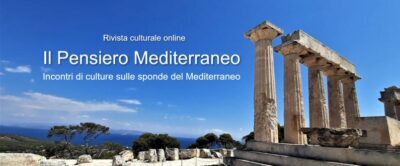Ricordi del ‘900 ( Memories of the 1900s) lirica di Giovanni Teresi

Ricordi del 900

La musica di Puccini
veniva dal piano
dai tasti d’avorio …
sottili dita tessevano
note piacevoli,
eleganti che salivano dal palco.
Stava lì seduto un artista
sconosciuto, bravo a far rivivere
la canzone di tanti anni fa.
Fuori, lungo il corso, la solita vita.
A volte anch’esso è un palcoscenico.
Una vecchia mano ne stringeva
un’altra …
Il nonno raccontava al nipote
la storia passata;
eventi delle due guerre mondiali,
nello scenario di parole
che descrivevano i fatti
in quell’attimo vissuti
dall’ingenuo ragazzino.
Era bravo il nonno a raccontare,
come quel pianista,
affondando la mente sulla tastiera
della storia.
Sempre vivida è la sua memoria!
Una foto dai contorni sfocati
lo mostra in divisa
con una croce al petto;
ch’era una parte d’Italia,
della nostra Patria …
in tricolore affissa sul cuore.
Sempre vivo è il ricordo della storia!
Nell’arco del tempo i giorni passano
spontanei, naturali, a volte cruciali.
Le parole, i pensieri si rinnovano,
si ricordano nel presente: che sfugge,
si snoda agli occhi delle generazioni,
che raccolgono tracce dei racconti,
delle storie non vissute.
La politica, la carta stampata,
le foto sono films a quelle pupille
che si schiudono in timoroso
avvenire.
Memories of the 1900s
Puccini’s music
it came from the piano
from ivory keys …
thin fingers wove
pleasant notes,
elegant who came up from the stage.
An artist sat there
unknown, good at reviving
the song of many years ago.
Out, along the course, the usual life.
Sometimes it too is a stage.
An old hand held some another one …
The grandfather was telling his grandson
past history;
events of the two world wars,
in the scenario of words
describing the facts
lived in that moment
by the naive boy.
Grandpa was good at telling,
like that pianist,
sinking your mind on the keyboard
of history.
The memory of him is always vivid!
A photo with blurred outlines
shows him in uniform
with a cross on the chest;
which was a part of Italy,
of our Homeland …
in tricolor affixed to the heart.
The memory of history is always alive!
Over time, the days pass
spontaneous, natural, sometimes crucial.
Words, thoughts are renewed,
remember in the present: that escapes,
unfolds in the eyes of generations,
that collect traces of the stories,
unlived stories.
Politics, print media,
the photos are films to those pupils
that hatch in fearful take place.
Giovanni Teresi







